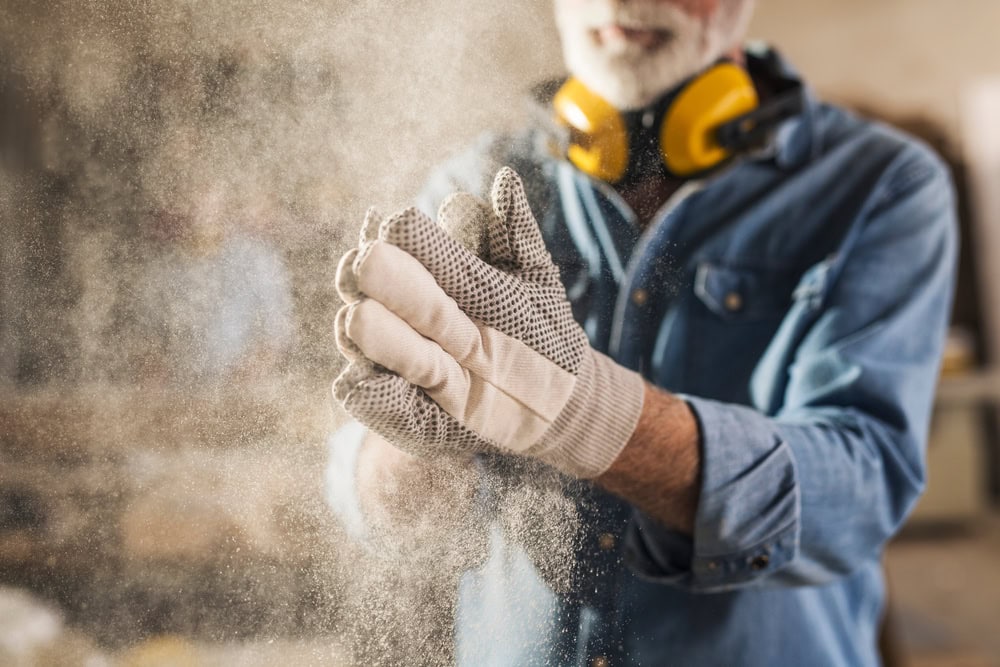Explore the importance of surface preparation for painting in Larimer County. Achieve lasting results with proper techniques for all surfaces.
Share:

Summary:
Surface preparation creates the molecular bond between your substrate and coating that withstands Larimer County’s harsh weather cycles. Without proper preparation, paint sits on top of dirt, old coatings, and damaged materials—creating a weak foundation that fails quickly. Professional preparation removes all barriers to adhesion using specific techniques matched to each surface type. For residential exterior painting projects, this means removing chalk, mildew, and loose paint through power washing at 2,500-3,000 PSI, followed by hand scraping and sanding. Commercial exterior painting requires even more intensive preparation due to larger surface areas and higher exposure to weather extremes. The preparation process typically takes 60-70% of total project time, but this investment prevents the 40% failure rate seen with inadequately prepared surfaces.
Power washing removes the invisible film of dirt, pollen, and organic growth that prevents paint adhesion. In Larimer County’s dry climate with frequent dust storms, surfaces accumulate layers of contaminants that seem clean but create barriers to proper bonding. Professional power washing uses adjustable pressure—2,500 PSI for hardy surfaces like concrete and vinyl, 1,500 PSI for delicate wood siding—combined with biodegradable detergents that break down stubborn residues. This process reveals the true condition of your surfaces and allows primers to penetrate properly, creating the mechanical grip your topcoat needs to resist wind, hail, and UV damage.
Power washing removes the invisible film of dirt, pollen, and organic growth that prevents paint adhesion. In Larimer County’s dry climate with frequent dust storms, surfaces accumulate layers of contaminants that seem clean but create barriers to proper bonding. Professional power washing uses adjustable pressure—2,500 PSI for hardy surfaces like concrete and vinyl, 1,500 PSI for delicate wood siding—combined with biodegradable detergents that break down stubborn residues. This process reveals the true condition of your surfaces and allows primers to penetrate properly, creating the mechanical grip your topcoat needs to resist wind, hail, and UV damage.
Want live answers?
Connect with a LF Rosa Painting expert for fast, friendly support.
Interior and exterior surfaces face entirely different challenges, requiring distinct preparation approaches. Residential interior cleaning focuses on removing cooking oils, smoke residue, and daily living contaminants that prevent proper paint adhesion. This involves TSP (trisodium phosphate) washing, minor patching with lightweight spackle, and primer application to create uniform porosity. Commercial interior cleaning addresses higher-traffic contamination, including scuff marks, adhesive residue, and industrial pollutants requiring specialized degreasers and etching primers. Exterior preparation battles weather damage, UV degradation, and moisture infiltration. The preparation intensity scales with exposure—south-facing walls receive 40% more UV damage and require more extensive scraping and priming than protected north exposures.
Deck painting and deck staining require the most intensive preparation because horizontal surfaces endure maximum weather exposure and foot traffic abuse. Colorado’s intense UV radiation breaks down deck coatings 30% faster than vertical surfaces. Preparation begins with power washing at 1,200-1,500 PSI to avoid wood damage, followed by deck repair of loose boards, protruding nails, and split boards. Sanding with 80-grit paper removes raised grain and surface oxidation, creating the smooth surface needed for proper coating adhesion. Premium deck staining products require perfectly clean, dry wood to penetrate properly and resist the freeze-thaw cycles that destroy poorly prepared surfaces.
Deck repair addresses the structural issues that cause coating failure before it begins. Loose fasteners create movement that cracks paint films, while damaged boards shed moisture and coatings irregularly. Professional deck repair replaces deteriorated boards with kiln-dried lumber, countersinks protruding fasteners, and fills gaps with exterior-grade wood filler. The repair process includes checking and tightening all connections, replacing damaged flashing, and addressing drainage issues that cause water pooling. These structural improvements create the stable foundation your coating needs to perform for its full expected lifespan of 5–8 years on properly maintained decks.
Surface preparation isn’t just the first step in painting—it’s the foundation that determines whether your investment succeeds or fails. In Larimer County’s challenging climate, proper preparation techniques prevent the costly cycle of frequent repainting that plagues rushed projects. From residential interior cleaning that creates flawless wall finishes to commercial exterior painting that withstands years of weather exposure, professional preparation pays for itself through extended coating life and reduced maintenance costs. Contact us today to learn how proper surface preparation can transform your property and protect your investment for years to come.
Article details:
Share:
Continue learning: